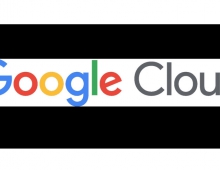
Microsoft Files Patent Infringement Action Against Motorola
Microsoft on Friday filed a patent infringement action against Motorola in the International Trade Commission and U.S. federal court, claiming that Motorola?s Android-based smartphones infringe nine Microsoft patents.
"Microsoft filed an action today in the International Trade Commission and in the U.S. District Court for the Western District of Washington against Motorola, Inc. for infringement of nine Microsoft patents by Motorola?s Android-based smartphones. The patents at issue relate to a range of functionality embodied in Motorola?s Android smartphone devices that are essential to the smartphone user experience, including synchronizing email, calendars and contacts, scheduling meetings, and notifying applications of changes in signal strength and battery power, " said Horacio Gutierrez, Microsoft corporate vice president and deputy general counsel of Intellectual Property and Licensing.
"We have a responsibility to our customers, partners, and shareholders to safeguard the billions of dollars we invest each year in bringing innovative software products and services to market, he added. "Motorola needs to stop its infringement of our patented inventions in its Android smartphones."
The patents relate to the smartphone's ability to send and receive email on-the-go, which is part of Microsoft?s Exchange ActiveSync technology.
While Google licenses Microsoft's ActiveSync for use in Android, Microsoft may plan to argue that handset makers that add their own technologies to Android also need a license for ActiveSync. Motorola, of the major Android supporters seems to be the the only one that doesn't license ActiveSync themselves, while HTC, Samsung, Sony Ericsson, Dell and others all license Microsoft's technology.
Other patents involve technology that displays signal strength and battery power on phones.
In a statement, Motorola said it had not received a copy of the complaint. "Motorola has a leading intellectual property portfolio, one of the strongest in the industry. The company will vigorously defend itself in this matter," it said.
Microsoft plans to release its new Windows Phone 7 software later this year, in an effort to resurrect itself in the viciously competitive phone market. The new software, which will be publicly unveiled on October 11 and expected on handsets in stores by November, is Microsoft's last chance, to catch up with Apple and Google's Android smartphones.
Samsung and HTC are expected to roll out Microsoft-based phones for the holiday season.
"We have a responsibility to our customers, partners, and shareholders to safeguard the billions of dollars we invest each year in bringing innovative software products and services to market, he added. "Motorola needs to stop its infringement of our patented inventions in its Android smartphones."
The patents relate to the smartphone's ability to send and receive email on-the-go, which is part of Microsoft?s Exchange ActiveSync technology.
While Google licenses Microsoft's ActiveSync for use in Android, Microsoft may plan to argue that handset makers that add their own technologies to Android also need a license for ActiveSync. Motorola, of the major Android supporters seems to be the the only one that doesn't license ActiveSync themselves, while HTC, Samsung, Sony Ericsson, Dell and others all license Microsoft's technology.
Other patents involve technology that displays signal strength and battery power on phones.
In a statement, Motorola said it had not received a copy of the complaint. "Motorola has a leading intellectual property portfolio, one of the strongest in the industry. The company will vigorously defend itself in this matter," it said.
Microsoft plans to release its new Windows Phone 7 software later this year, in an effort to resurrect itself in the viciously competitive phone market. The new software, which will be publicly unveiled on October 11 and expected on handsets in stores by November, is Microsoft's last chance, to catch up with Apple and Google's Android smartphones.
Samsung and HTC are expected to roll out Microsoft-based phones for the holiday season.





















